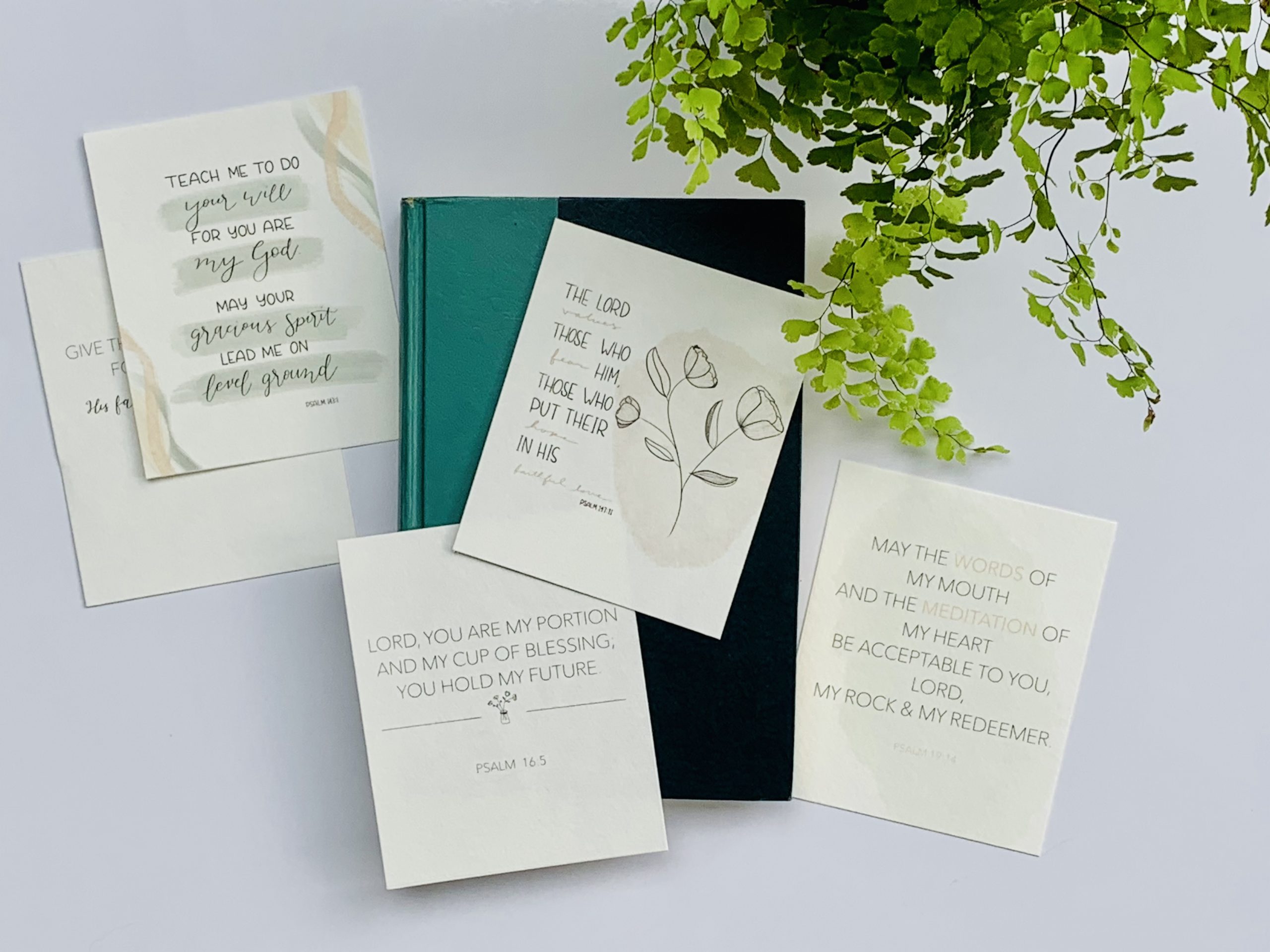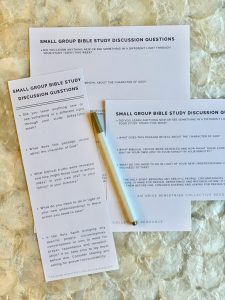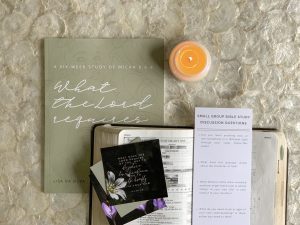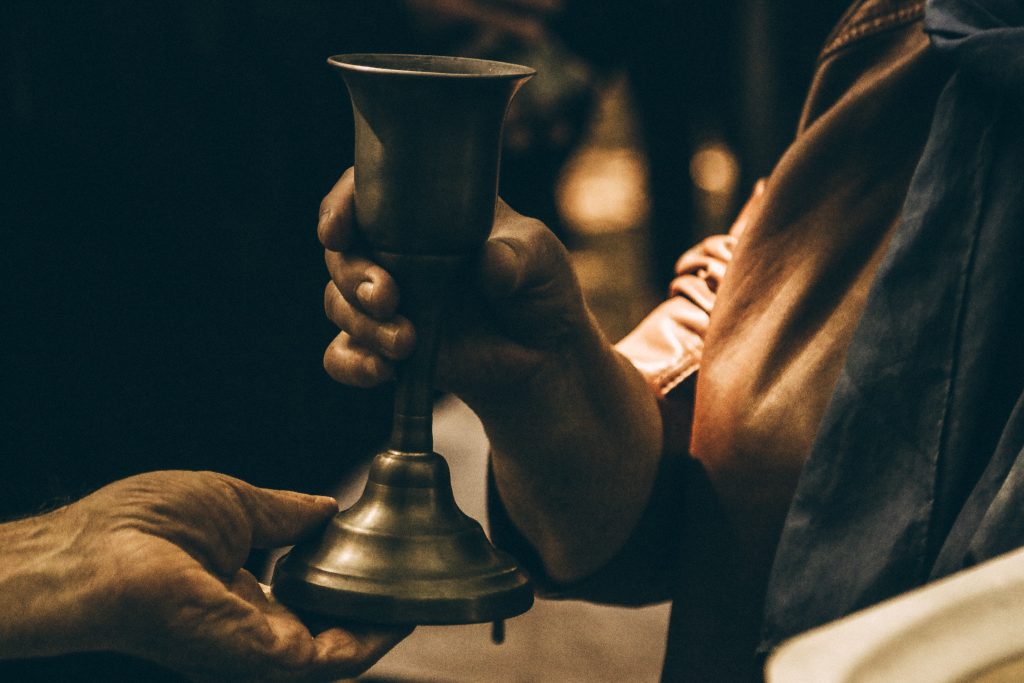Last winter, I married my best friend in an intimate gathering on the third floor of our church on a dreamy December day, fog enveloping us in pure bliss. We spent the week after our wedding in the stunning – and to our surprise, very warm – mountains of Yosemite National Park. Our only agenda was to rest, eat, adventure, laugh and live, and we did just that. It was a dream come true – so many moments carved out for us to simply be together; treasures I immediately stored in my heart for all time.
Two days after returning home, exactly a week before Christmas, I was unexpectedly laid off from my job. Budget cuts eliminated my position and others throughout the organization. Still shell shocked, I called my husband, drove home, and we lamented for the afternoon, holding space for the complexity of emotions that followed. A roller coaster going up and down on its tracks. A prayer for understanding and peace. A reliance on the Holy Spirit to intercede and speak the words we didn’t yet have.
I began to wonder, in all my fragile humanness, “Am I simply not enough? How do I keep missing the mark? Will my professional life ever amount to something I can be proud of?” It was a string of questions that scared me; a reality I didn’t feel prepared to embrace.
Christmas was a welcome place of light and hope and joy. Time with family and friends was extra comforting, and the new year was peeking over the horizon. Something about a fresh start aligning with the beginning of my job search was an encouragement to me. This would be easy, right? I thought that if I could just will a new job into existence, that if I tried hard enough, put in enough hours, or did everything right, an opportunity would soon materialize. Looking back now, I had so much learning to do. So many honest and challenging and illuminating conversations with God awaited me over the coming months. Silent prayer paved the way, as I often didn’t have words.
A few months into my search, I was reminded of the term “wilderness” through a touching story told by Tyler Staton, a favorite author of mine, a concept Scripture isn’t unfamiliar with. In the gospels, Jesus himself was led into the wilderness by the Spirit and tempted by the devil for 40 days. He knew the pain of hunger and weakness and want, but his responses to the temptor reflect an unshakable confidence in God and His Word. Eventually, Satan offers the entire world to Jesus after a string of other temptations, a deceitfully attractive offer, but one Jesus does not even blink at, rebutting, “Worship the Lord your God, and serve him only” (Matthew 4:10). He did not sin or compromise in light of His humanity. A mark of obedience and allegiance and belief.
Gradually, my attitude about my job search was being ushered in a different direction. I began to ask, “What would you have me discover in this place, God? This place that feels like my personal wilderness? This time of waiting and mystery?” I began to ask “why” less and knew that I needed to press further into the Father. How could I direct my heart, my affections, my whole being to the Lord? It is indeed what I am created for.
St. Brendan the Navigator captures the heart of the unknown and the things that feel so wildly mysterious in his ancient prayer:
“Christ of the mysteries, I trust You
to be stronger than each storm within me.
I will trust in the darkness and know
that my times, even now, are in Your hand.”
Kallistos Ware, an English theologian, says it this way:
“In the Christian context, we do not mean by a ‘mystery’ merely that which is baffling and mysterious, an enigma or insoluble problem. A mystery is, on the contrary, something that is revealed for our understanding, but which we never understand exhaustively because it leads into the depth or the darkness of God. The eyes are closed—but they are also opened.”
I’ve long taken comfort in knowing that the children of God who came even thousands of years before me undoubtedly experienced their own hardships, but knew their Creator and Sustainer. Their words tell a story of a good God, our shared God, who heartens them beyond their lives and deep into their being. While I searched for each new job opportunity, I held their reflections close to my heart.
An afternoon shortly thereafter, the Holy Spirit gently placed Psalm 27:13 on my heart: “I remain confident of this: I will see the goodness of the LORD in the land of the living. Wait for the LORD; be strong and take heart and wait for the LORD.”
After several months of long interview processes and numerous rejections, I was fatigued on a soul level. But while I hadn’t expected to be stretched so much by something that I knew wasn’t my identity and presented such a continuous challenge for me, I could still, at any time, call on a multitude of moments turned into blessings – blessings that show an unmistakably powerful God, but also one available to me in even the smallest details.
While I still yearned for answers and opportunities, I knew it wasn’t answers that, in their deceit, could fulfill or make me enough. Each moment of disappointment and every decision made was formative. I’m learning that I can not only wait, but wait well. In my wilderness, He has, again and again, filled me, molded me, breathed new life into me, and strengthened me.
I still don’t have a job offer. I still don’t have answers. But I am set on asking, “God, what would you have me discover in this place? This moment in time that challenges and changes me? This wilderness?”
Psalms Redux, a collection of the psalms transposed from ancient language to a more contemporary one reads Psalm 27 this way:
“Oh that I may dwell in You day by day, moment by moment.
Then peace would be mine.
Then I could persevere when the waters threaten to overwhelm.
Then my eyes would be filled with beauty and my mouth with song.
Then courage and wisdom would carry me to safe shores.”
What song can I sing to You today, Lord? There are so many, and You are worthy of each one.
For Further Study
- Psalms Redux was introduced to me through an immersive prayer room experience at my home church, Union Chapel. At the time, I didn’t know I would be picking up something that would instantly prove fruitful. I’ve used it in conjunction with my daily devotional time in the Bible and I continue to find tears welling in my eyes from Carla’s retelling of the original psalms and beauty of her contemporary language. It has accompanied me both in my time of wilderness and abundance, and is a life-giving resource I will always keep close.
- While not explicitly mentioned in this article, Tyler Staton’s book, Praying Like Monks, Living Like Fools has been a welcome gem to enliven my prayer life. This has been particularly encouraging in helping me offer more raw and honest prayers to God, especially during wilderness seasons.
 About the Author:
About the Author:
Megan is captivated by the love of Jesus and delights in participating in God’s work of reuniting Heaven and Earth. She is a wife to her best friend and sweet husband Drew and so thankful for the gift of marriage. Her ideal day would include prayer and a devotional, eating delicious food, a workout or run in the great outdoors, and the company of those she holds dear.
She feels an inherent calling to cultivating meaningful relationships of depth with those she meets and telling stories of the God of joy, peace, hope, beauty, and faithfulness. After giving her life to Christ in her mid 20s, she rejoices in knowing she has found her eternal home, deepest love and ultimate fulfillment.
 About the Author, Sarah Bulkley
About the Author, Sarah Bulkley About the Author:
About the Author:



 Lucy Westlake has been climbing mountains since she could walk. With a deep love for the outdoors and a
Lucy Westlake has been climbing mountains since she could walk. With a deep love for the outdoors and a “As I watched the daily procession of my pen pal and other women and young girls in the community walk
“As I watched the daily procession of my pen pal and other women and young girls in the community walk



 About the Author – Lisa DaSilva is a wife, mom of two teenagers, a teacher, and an advocate for women to love God with their heart, soul, and mind as they engage in responsible study of His Word. Loving Jesus and making Him known really is her everything.
About the Author – Lisa DaSilva is a wife, mom of two teenagers, a teacher, and an advocate for women to love God with their heart, soul, and mind as they engage in responsible study of His Word. Loving Jesus and making Him known really is her everything. Marnee Alfson is an EMDR trained trauma specialist in private practice in Vancouver, WA. Marnee received her training under the direction of leading author and developer of Story Informed Trauma Therapy (SITT), Byron Kehler, MS. She has worked with survivors of various traumas such as sexual and/or domestic assault, displacement, first responders, attachment in relationships, body image, life transitions and mood management.
Marnee Alfson is an EMDR trained trauma specialist in private practice in Vancouver, WA. Marnee received her training under the direction of leading author and developer of Story Informed Trauma Therapy (SITT), Byron Kehler, MS. She has worked with survivors of various traumas such as sexual and/or domestic assault, displacement, first responders, attachment in relationships, body image, life transitions and mood management. About the Author:
About the Author: 
 About the Author: Maya DaSilva is a high school junior who just got her driver’s license but rarely remembers where the keys are.
About the Author: Maya DaSilva is a high school junior who just got her driver’s license but rarely remembers where the keys are.